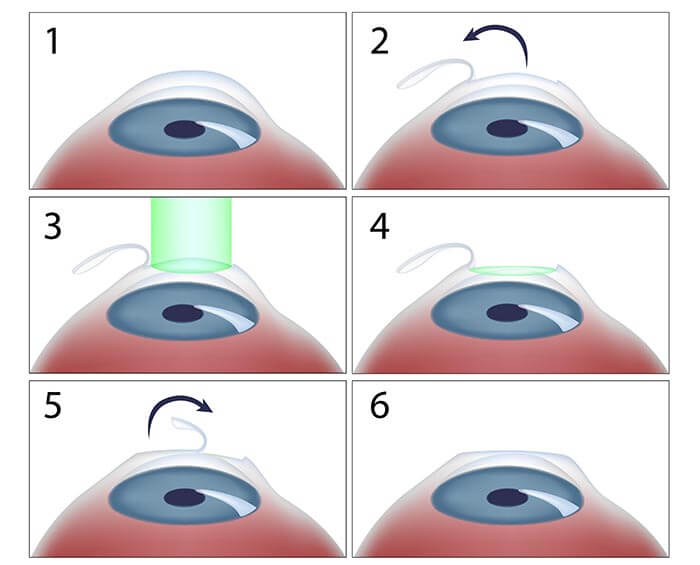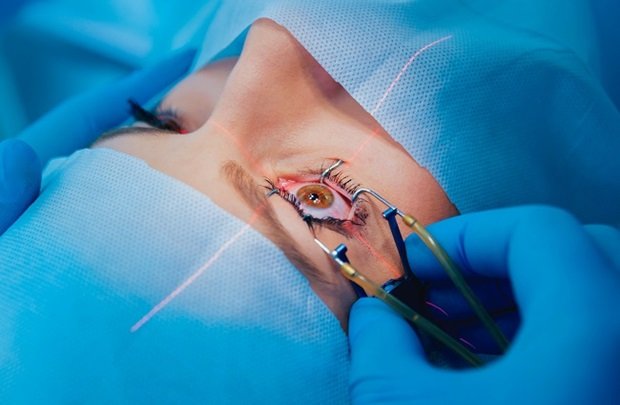Outstanding Eye Care Providers by Lasik Eye Surgery Tallahassee Specialists
Outstanding Eye Care Providers by Lasik Eye Surgery Tallahassee Specialists
Blog Article
A Comprehensive Check Out the Different Eye Surgery Procedures Used by Competent Optometrist
In the realm of ophthalmology, the landscape of eye surgical treatment treatments supplied by skilled ophthalmologist is as varied as it is progressed. From the commonly acknowledged LASIK eye surgery to the less acquainted refractive lens exchange, each procedure holds the assurance of vision correction and enhancement. As people browse the myriad alternatives readily available to them, recognizing the ins and outs of these medical treatments ends up being extremely important in making notified choices concerning their eye health. The precision, technology, and expertise behind these procedures reveal an interesting world where science and art assemble to redefine the opportunities of vision improvement.

LASIK Eye Surgical Procedure
The precision of LASIK eye surgical treatment uses patients a transformative option for vision correction supplied by competent optometrist. LASIK, which means Laser-Assisted In Situ Keratomileusis, is a preferred refractive surgical treatment that improves the cornea to attend to usual vision issues such as astigmatism, nearsightedness, and farsightedness. This outpatient treatment utilizes an extremely specialized laser to exactly eliminate tiny amounts of cells from the cornea, permitting boosted focusing power and more clear vision without the need for glasses or call lenses.
Throughout the LASIK procedure, the eye specialist produces a slim flap on the cornea using a microkeratome or a femtosecond laser. With its high success price and quick recuperation time, LASIK eye surgical treatment has actually come to be a relied on approach for accomplishing long-term vision enhancement (Lasik Eye Surgery Tallahassee).
PRK Procedure
A highly reliable choice to LASIK eye surgery is the PRK treatment, known for its successful end results in vision adjustment. PRK, or Photorefractive Keratectomy, is a sort of refractive surgical procedure that reshapes the cornea to correct refractive mistakes such as astigmatism, farsightedness, and nearsightedness.
Throughout the PRK treatment, the outer layer of the cornea, called the epithelium, is eliminated to access the underlying corneal tissue. Unlike LASIK, which produces a flap in the cornea, PRK directly reshapes the surface of the cornea. Lasik Eye Surgery Tallahassee. This makes PRK a suitable option for clients with slim corneas or various other corneal abnormalities that may prevent them from going through LASIK
Adhering to the elimination of the epithelium, an excimer laser is made use of to form the cornea to the desired form, dealing with the refractive error. The epithelium regrows naturally over a few days after the treatment. While the recuperation time for PRK is normally much longer compared to LASIK, many individuals accomplish exceptional visual outcomes with this procedure. PRK is a reliable and secure option for people looking for to reduce or remove their reliance on corrective lenses.
Cataract Surgical Treatment
Cataract surgical treatment is an usual procedure performed to remove the gloomy lens of the eye and change it with a clear man-made lens. This surgical procedure is generally done on an outpatient basis and is very effective in restoring vision. The gloomy lens, which is understood as a cataract, develops slowly and can cause obscured vision, problem seeing during the night, and level of sensitivity to light.
Throughout the cataract surgery procedure, the eye doctor makes a tiny laceration in the eye and utilizes ultrasound technology to break up the over cast lens. The fragmented lens is then delicately suctioned out, and a synthetic intraocular lens (IOL) is put in its place. This IOL aids to focus light onto the retina, improving vision.
People undertaking cataract surgery are normally awake throughout the procedure, which usually lasts around 15-30 minutes. Recuperation time is reasonably fast, with several people discovering enhanced vision within a couple of days. It is necessary to adhere to post-operative care directions provided by the eye cosmetic surgeon to ensure optimum healing and vision outcomes.
Refractive Lens Exchange
Refractive Lens Exchange, also referred to as lens replacement surgical procedure, is a procedure that involves removing the eye's all-natural lens and changing it with an artificial lens to remedy vision issues. This surgical method is mostly used to treat presbyopia, extreme hyperopia (farsightedness), and other refractive errors that can not be sufficiently resolved with conventional techniques like glasses or get in touch with lenses. Throughout the treatment, the natural lens is commonly changed with a premium intraocular lens (IOL) that can correct refractive mistakes and, in some instances, even stop the advancement of cataracts in the future. Refractive Lens Exchange is considered a effective and secure option for people seeking to decrease their dependence on rehabilitative eyeglasses and boost their overall high quality of vision. By talking to a competent ophthalmologist, individuals can figure out if they appropriate prospects for this type of surgical procedure and go over the possible advantages and dangers connected with the procedure.
Corneal Transplant
Having actually resolved refractive mistakes via procedures like lens replacement surgical treatment, competent eye doctors also supply corneal transplants as a solution for particular eye conditions. A corneal transplant, also referred to as corneal grafting, includes replacing a damaged or infected cornea with a healthy benefactor cornea to improve vision. This procedure is normally advised for individuals with conditions such as keratoconus, corneal scarring, corneal abscess, or corneal thinning.
Throughout a corneal transplant, the ocular doctor removes the main section of the harmed cornea and changes it with a benefactor cornea that is meticulously matched for size and form. There are different kinds of corneal transplants, including permeating keratoplasty, where read the article the whole thickness of the cornea is changed, and partial density transplants like Descemet's removing automatic endothelial keratoplasty (DSAEK) or Descemet's membrane layer endothelial keratoplasty (DMEK), which replace only the internal layers of the cornea.

Final Thought

In the world of ophthalmology, the landscape of eye surgical procedure procedures provided by competent eye doctors is as diverse as it is advanced.The accuracy of LASIK eye surgery uses patients a transformative solution for vision adjustment provided by experienced eye medical professionals.Refractive Lens Exchange, additionally known as lens replacement surgical treatment, is a treatment that entails getting rid of the eye's natural lens and replacing it with a synthetic lens to my review here deal with vision troubles.Having addressed refractive mistakes through procedures like lens replacement surgical treatment, knowledgeable eye doctors additionally provide reference corneal transplants as a remedy for particular eye conditions.In verdict, experienced eye medical professionals provide a range of eye surgery treatments including LASIK, PRK, cataract surgical treatment, refractive lens exchange, and corneal transplant.
Report this page